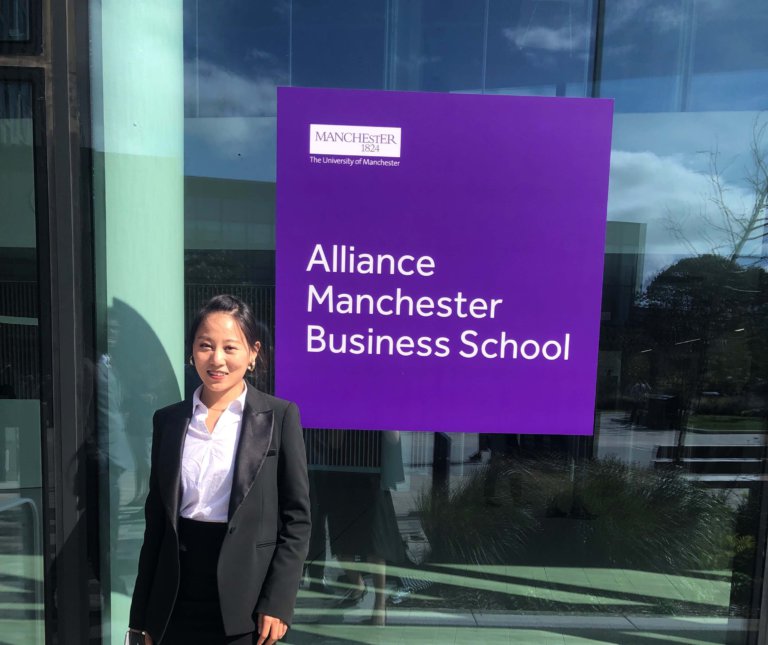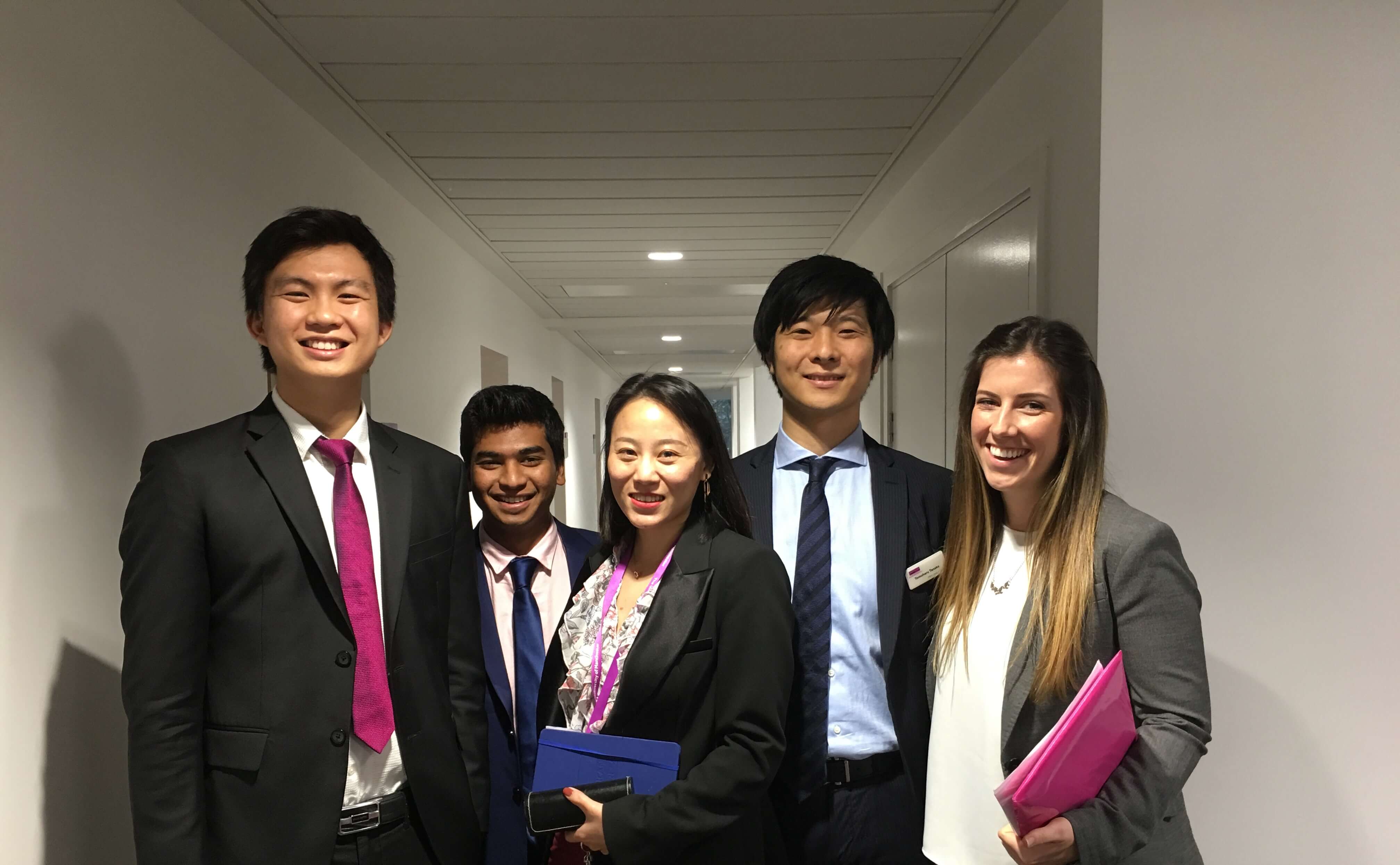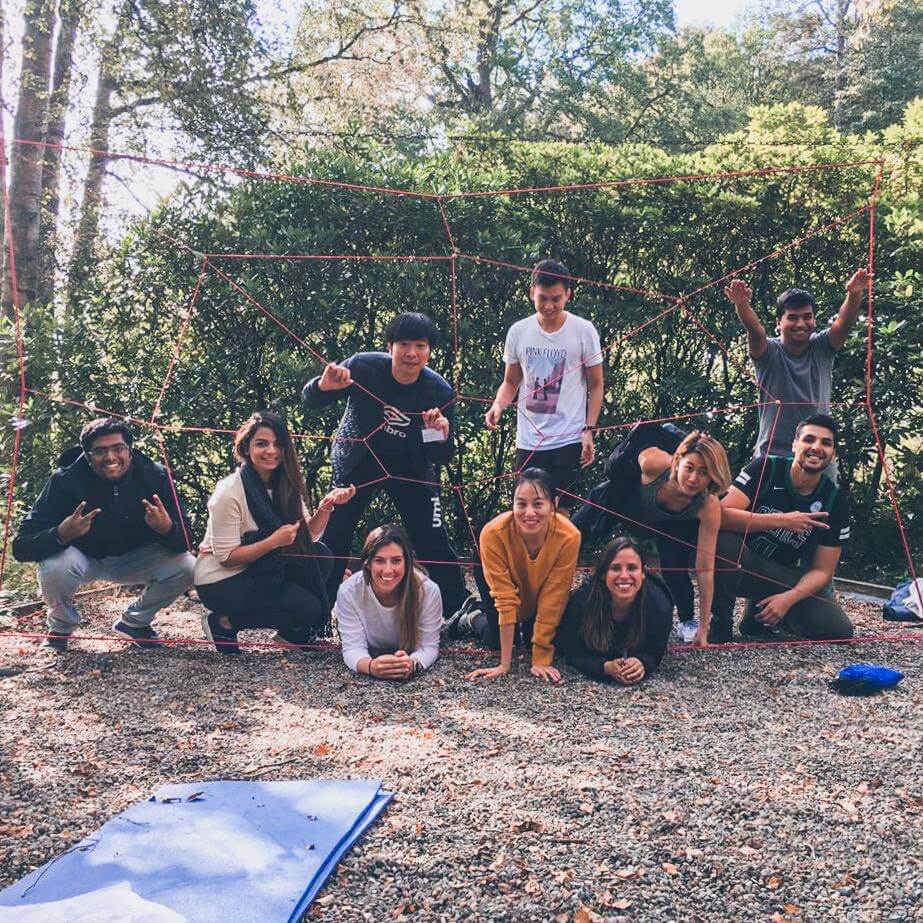
Before Mi Mi Khaing began her MBA journey at Alliance Manchester Business School, she was a house surgeon at Lashio General Hospital in Myanmar. Khaing is passionate about leveraging technology to improve care efficiency and life expectancy. If that isn’t impressive enough, she also had two start-ups in the hotel industry back home and successfully sold the company after one year of operation.
Looking to bridge her career in healthcare to business management, Khaing enrolled in an MBA. “I hold an MBBS degree, but I wanted to enter the management side of healthcare to have a bigger impact on public health,” she tells us. Below we speak to her about her experience at Alliance Manchester Business School and what it’s like to be an MBA student:
Why did you choose to pursue this course at Alliance Manchester Business School?
The MBA programme at Alliance Manchester Business School is famous for its Manchester method — “learning by doing” — which means we learn through practicality and doing real work. I’m particularly attracted by this concept as it allows me to apply my learning points through consultancy projects. As an MBA student, to work as a consultant to solve real problems for organisations within and outside of the UK, is a great hands-on approach.

According to Khaing, her teachers facilitate classes really well by encouraging students to bring out their past experiences. Source: Mi Mi Khaing
Do you think it would have made a difference if you studied at a local institution?
Different programmes offer different opportunities and learning experiences, so I would say yes it’s definitely different. Studying at Alliance Manchester Business School has opened up many opportunities for my career prospects.
I’m much more competitive in the international job market. For example, an MBA from a uni in Manchester has helped me secure an internship at one of the top 10 UK healthcare startups during the pandemic.
Can you walk us through your work experience as a doctor and your startups?
After completing my residential training and getting certified as a doctor, I discovered an opportunity in the hotel supply niche market. As I’ve always wanted to start my own business, I jumped at the chance. After one year of operation, I had built a team of six supplying more than 50 hotels across Myanmar.
What has been your most memorable class so far at Alliance Manchester Business School?
The “Business Simulation” class where we formed a team of six to simulate as a management board for a car company. Throughout five intensive days, we were competing against three other teams, doing pricing strategies, marketing strategies and forming a human resource management.
The unique part of this course was we faced a new problem every other day. For instance, pressure from shareholders, labour union strikes, and so forth. This all required us to change business strategies in order to adapt and turnaround quickly. As challenging as it was, it improved my resilience and ability to deal with ambiguity.
How have your lecturers supported you in your studies thus far?
The professor from the “Leading and Managing in a Global Environment” course is an excellent one. This course focuses on soft skills such as people management and leadership. Sometimes, the topics can be really abstract.

The UK is not only a country with great academic resources, but also rich in culture as it embraces people from different countries. Source: Mi Mi Khaing
However, the teacher facilitates the class really well by encouraging us to bring out our past experiences and for me to reflect on what happened in the past. I also learnt different problem-solving strategies and perspectives from my classmates.
What are the practical learning elements in your MBA programme?
Actually, I’m applying my learning every day. The MBA programme from Alliance Manchester Business School integrates three consultancy projects with lectures. This means I have to work as a consultant for an organisation while attending lectures.
This allows me to leverage the concepts that I learned from the lectures to the project I’m working on. Whenever needed, I can always ask for support from both academic professors and MBA alumni working in different industries.
What are your academic goals with your MBA?
Academically, I plan to gain financial and data analytic knowledge through this programme. I’m able to learn financial valuation and data analysis through lectures and apply these skill sets in the real world through consultancy projects and internships. Additionally, what I personally achieve more are soft skills like leadership, team management, negotiation and most importantly, a bigger and stronger international network.
What do you plan to do with this degree after graduating?
At the moment, I do not have a plan to study further. Following my MBA degree, I’ve managed to secure a full-time associate position at a strategy consulting firm which will begin soon.
Lastly, what advice do you have for international students looking to study abroad?
The UK is not only a country with great academic resources but also rich in culture as it embraces people from different countries. In addition to world-class learning, making friends from different countries and building life-long connections with them are things to look forward to.
Furthermore, there are many scholarships available for international students which can help reduce the financial burden. Do more research in your area of study, research the schools, and reach out to students currently studying at them to understand more. Then you can make an evaluation on which uni suits you the most.











